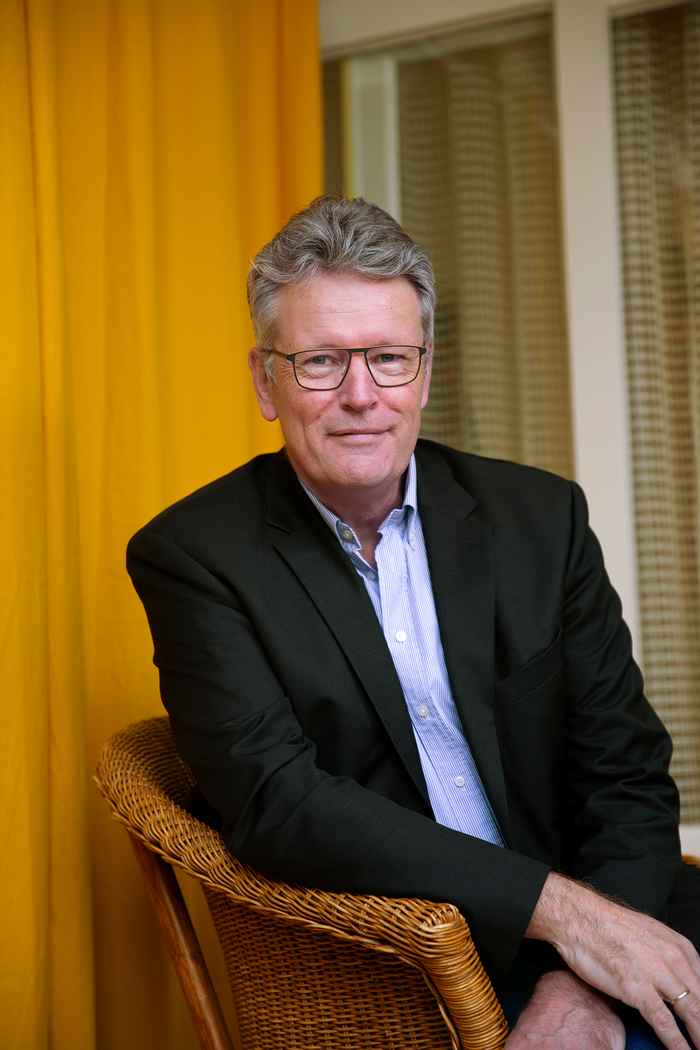University of Amsterdam (UvA) Awards Honorary Doctorates to Folkert Jensma and Zeynep Tufekci
The University of Amsterdam will award honorary doctorates to journalist/columnist Folkert Jensma and sociologist/writer Zeynep Tufekci. Jensma will receive the honorary doctorate for his significant journalistic work, in which he ceaselessly draws attention to the rule of law, the quality of everyday legal practice, and the impact this has on those seeking justice. Tufekci will be awarded the honorary doctorate as a modern public intellectual for her sharp analyses on social movements and social media, among other things. The honorary doctorates will be awarded during the celebration of the UvA’s Dies Natalis on Thursday 11 January 2024.

‘The influence and significance of the work of both Jensma and Tufekci lies in the social impact they manage to make,’ explains Rector Magnificus Peter-Paul Verbeek. They pose scientific questions based on societal challenges, and they translate the answers back to society and individual citizens. The bridges they manage to build between science and society align perfectly with the UvA’s social involvement and our aim of contributing to a fair and resilient society. I am therefore very proud that we can award Jensma and Tufekci with honorary doctorates.’
Folkert Jensma
Folkert Jensma (LLM) is a legal editor and commentator at NRC Handelsblad. He served as the editor-in-chief of the same newspaper from 1996 to 2007. In his ‘Rule of Law’ columns for NRC, Jensma consistently draws attention to the rule of law and informs the public about relevant insights from both within and outside the field of academia. For instance, he covers topics such as the separation of powers, access to justice, and innovation. His dedication to the rule of law and the quality of the justice system is also evident in his other journalistic work. Through impressive reports, such as his coverage of family law proceedings, he continually updates readers about the state of the justice system. As such, his work serves as a significant complement to the academic research conducted at the University of Amsterdam and other universities on the rule of law, the justice system, and access to justice.
‘Like no other in the Netherlands, Jensma combines a systemic perspective on the rule of law and legal practice with a keen eye for ‘law in action’: everyday legal practice, the related role of legal professionals, and its impact on individual citizens. Jensma has, in a way, become the guardian of the rule of law over the past decades, always with an eye on the importance of legal equality and effective access to justice for ordinary citizens. Also, he does not shy away from strong criticism of legal professionals. In doing so, Jensma constantly holds up a mirror to legal practice,’ says honorary promoter Iris van Domselaar.
The honorary supervisor is Prof. Iris van Domselaar, professor of Philosophy of Law and Legal Ethics at the Amsterdam Law School.
Zeynep Tufekci
Prof. Zeynep Tufekci is a professor at Princeton University, where she is the Henry G. Bryant Professor of Sociology and Public Affairs. She is also a columnist for the New York Times and WIRED. Tufekci made a name for herself as a ‘sociologist of technology’ during the popular uprisings that took place in the Middle East in the 2010s. While many scientists were overly optimistic about the role of social media in democratisation and others were outright cynical, Tufekci had a balanced, informed and sharp analysis right from the start.
Initially, she mainly explained her theories and analyses on her blog and social media. In 2017, her book Twitter and Tear Gas (Yale University Press) was published – it is now considered a modern classic on both social media and social movements. In it, Tufekci presents an original and compelling theory of digital social movements. She is also known for her publications on COVID-19. Here too, her involvement mainly began on social media as well as traditional media, eventually culminating in a series of scientific articles in leading journals such as The Lancet, Science and PNAS.
‘In her columns and on social media, Tufekci distinguishes herself by extensively scientifically substantiating her ideas. Her writing always draws on the most recent and advanced knowledge, but she is not afraid to choose a position that goes against the prevailing opinion if the facts warrant it,’ according to honorary supervisor Justus Uitermark. Through her work and approach, Tufekci not only means a lot to her field of sociology, but also to science in general and to journalism as well.



